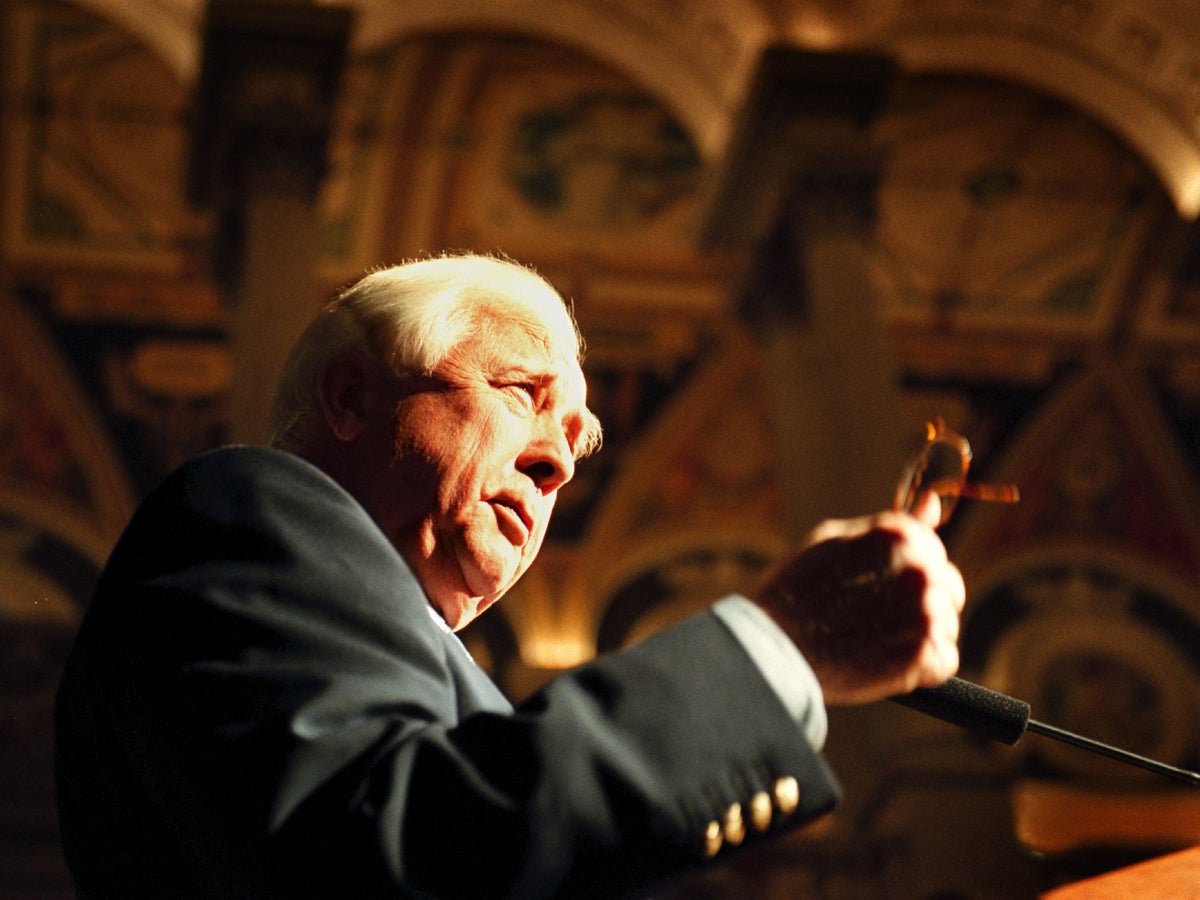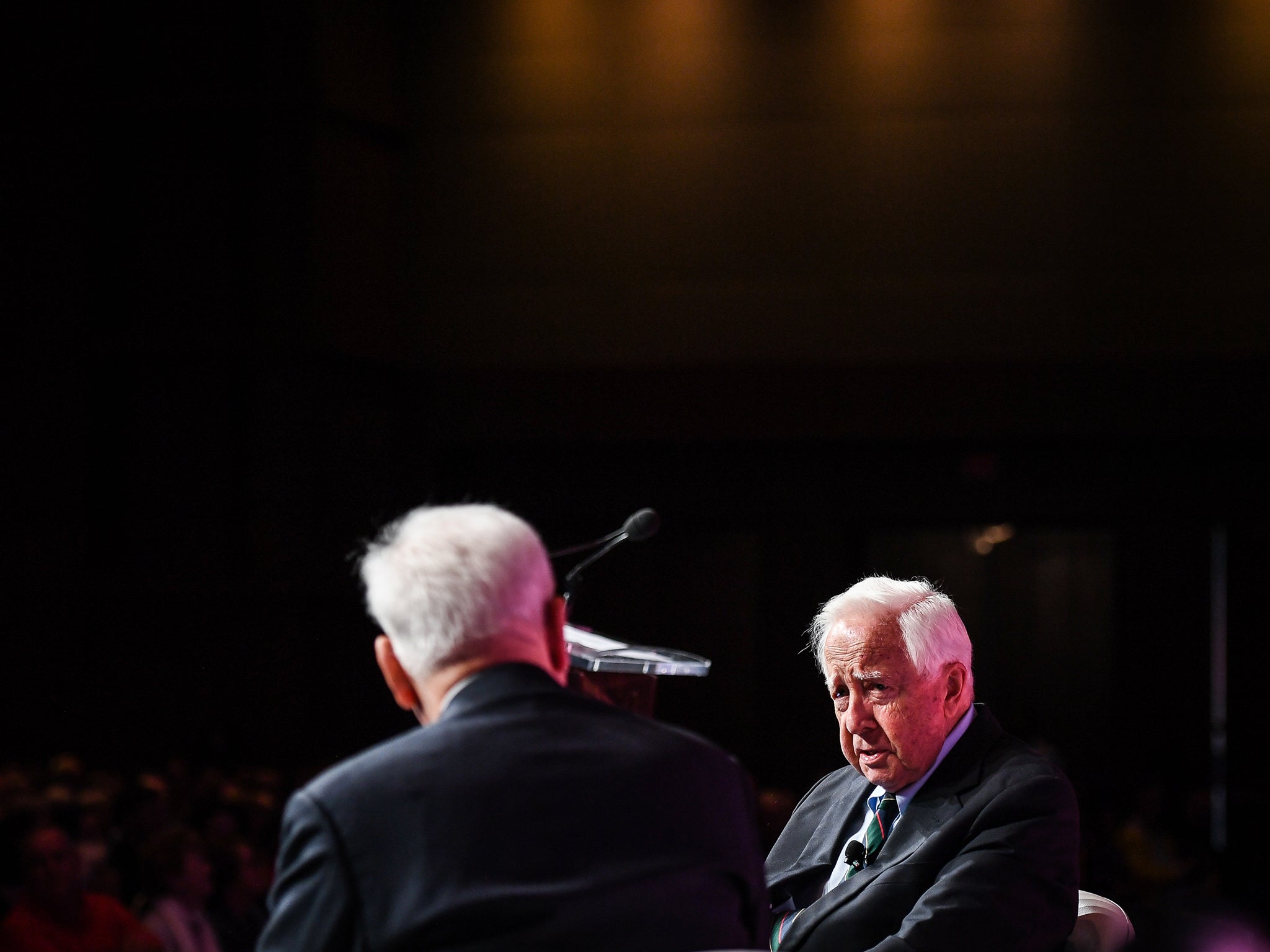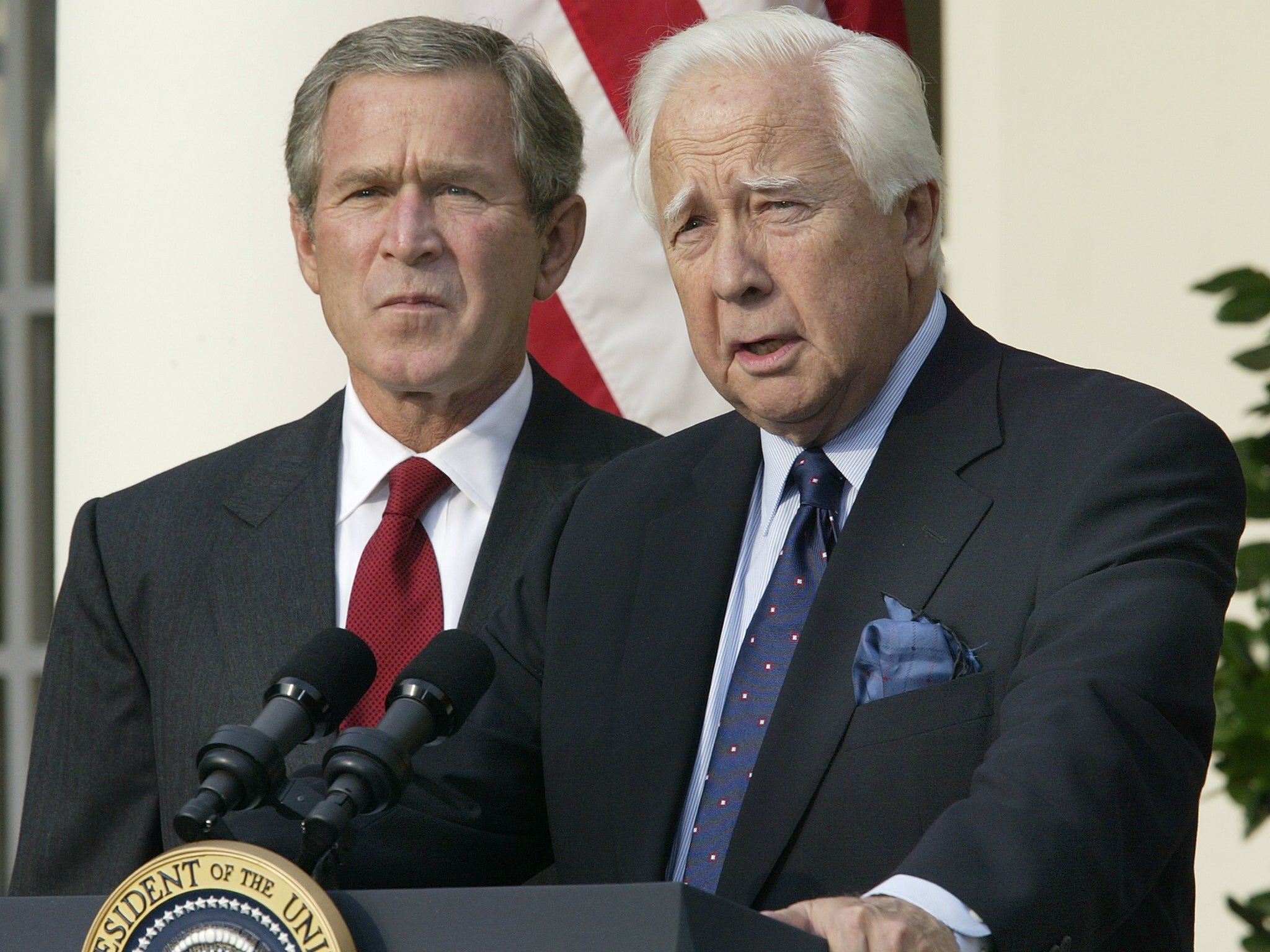
David McCullough was a young researcher at the US Information Agency when he walked into the Library of Congress in 1961 and chanced upon a photography exhibit depicting the 1889 flood in Johnstown, Pennsylvania, the deadliest in American history.
“I was overwhelmed by the violence revealed in them, the destruction,” McCullough, who was from the same area of western Pennsylvania, later told the Johnstown Tribune-Democrat. More than 2,200 people died, and a thriving coal-and-steel town was submerged in muddy debris because wealthy industrialists had neglected a dam.
The passage of time had reduced the tragedy to a historical footnote, McCullough discovered, with little if any serious scholarly study devoted to it. For years, he dedicated his spare time to his research, interviewing the few remaining survivors to capture their memories of sudden terror, desperate acts of self-preservation and the awful duty, in the aftermath, of identifying the dead.
The Johnstown Flood, published in 1968, became a bestseller, rekindled national interest in the disaster and instantly established its author as a historian with an exceptional gift for animating history.
McCullough, long regarded as a master storyteller of American daring, endeavour and perseverance, has died aged 89.
In a career spanning more than five decades, McCullough turned out hugely popular tomes about such subjects as the building of the Panama Canal and the Brooklyn Bridge. He put a spotlight on the largely unknown but extraordinary people who battled disease, bureaucracy and graft to see such awe-inspiring visions accomplished.
His biographies of two underappreciated presidents, John Adams and Harry S Truman, shone a light on their achievements and earned him two Pulitzer Prizes.
When he turned his attention to the great forces and figures in American history, such as the American Revolution (1776) or President Theodore Roosevelt (Mornings on Horseback), he brought to life the grand sweep of time and place, as well as the colourful, minute historical details that characterized his widely lauded storytelling skills.
With his sonorous and sombre voice, commanding presence and shock of white hair, McCullough appeared frequently on television series such as PBS’s American Experience. He often collaborated with filmmaker Ken Burns and narrated Burns’s Emmy Award-winning documentary series The Civil War.

McCullough’s honours included two National Book Awards and the Presidential Medal of Freedom, presented in 2006 by George W Bush.
“History matters. That’s what I’ve tried to convey,” McCullough told The Patriot Ledger of Quincy, Massachusetts, in 2017. “It’s essential to understand our nation’s story, the good and the bad, the high accomplishments and the skulduggery. And so much of our story has yet to be told.”
McCullough’s writing style was deceptively approachable, often belying the years he spent mining dusty archives for that telling letter, document or record that might bring a story to life.
In the course of his research for Truman (1992), McCullough moved for a time to the 33rd president’s hometown of Independence, Montana, to pick up the local accent and almost literally follow in the footsteps of the former president on his fast-paced early-morning walks. Years earlier, while writing The Great Bridge (1972), he had grown a beard in an effort to immerse himself in the life of one of the key builders of the Brooklyn Bridge.
“The only way I can attain this feeling for my subject is when I’ve soaked up so much information on it, I know it from every angle and direction, and can call on all those resources to imagine that I am there,” McCullough told The New York Times.
Working for much of his career in a tiny windowed shed behind his farmhouse in West Tisbury, on Martha’s Vineyard, McCullough tapped away on a manual 1940 Royal typewriter purchased for $25 in 1965.
“I like the tactile part of it,” he told the NYT. “I like rolling the paper and pushing the lever at the end of the line. I like the bell that rings like an old train ... I even like crumpling up pages that don’t work ... I don’t like the idea that technology might fail me, and I don’t like the idea that the words are not really on anything.”
David Gaub McCullough was born, the third of four sons, in Pittsburgh on 7 July 1933. His father was a businessman, and his mother was a homemaker. He graduated in 1951 from the private Shady Side Academy, then entered Yale University, where he majored in English literature.
After receiving his degree in 1955, McCullough wrote for Sports Illustrated, Architectural Forum and Time magazine before joining a US Information Agency publication in 1961. Later, while working at American Heritage Publishing in New York, he made his literary debut with The Johnstown Flood, the success of which enabled him to focus full time on his books.
His next idea came to him over lunch one day on the Lower East Side of Manhattan, when his dining mates, who included an engineer, began discussing the nearby Brooklyn Bridge as a miraculous feat of 19th-century construction.
In The Great Bridge, McCullough explored the technological challenges, political intrigue and human drama – including the accidents and disease that crippled and killed the builders – behind the world’s most magnificent suspension bridge.

At the library at Rensselaer Polytechnic Institute, chief engineer Washington Roebling’s alma mater, McCullough found what he described as “the legendary trunk of letters in the attic”. From the Roeblings who built the bridge – father John and son Washington – to the nefarious dealings of Boss Tweed, McCullough revealed the soul of a project that defied the parameters of engineering and courage.
For McCullough, the project illuminated a crucial insight. “Discovery comes most often not from finding something unknown or long hidden, but from seeing afresh what has been on the table all along,” he told a publication of Cornell University, where he had once been a visiting professor.
McCullough’s TV work, including more than a decade on American Experience, remained secondary to his writing.
His work on the National Book Award-winning The Path Between the Seas (1977), about the Panama Canal, inspired a deep interest in Theodore Roosevelt, a key player in the canal’s history. McCullough’s study of Roosevelt’s childhood, adolescence and early manhood became Mornings on Horseback (1981), which also won the National Book Award and was a finalist for the Pulitzer Prize in biography.
Sometimes, serendipity played a role in his work as a historian. The decision to write a profile of artist Pablo Picasso took McCullough in a new but ultimately futile direction.
“I’ve always been interested in the creative force and how it affects history,” he told Publishers Weekly. “I’m not a canal freak or a bridge buff; I wanted to examine the people who built them. I want to set Picasso in the context of the history of our time.”
But a few months into his research, he concluded that he “loathed” Picasso. An offhand discussion with his editor at Simon & Schuster led him to refocus his labours on what would become his 1,000-page biography of Truman.
Truman had often been dismissed as a onetime Missouri haberdasher who lucked into politics. McCullough’s book was a culmination of efforts by many historians to reconsider Truman and to convey the man behind his accomplishments.
“Maybe one of the reasons was because he was the first president I ever saw with my own eyes,” he said. “I was coming out of the St George Hotel subway station in Brooklyn. The year was 1956. I was new to New York and still a bit starry-eyed, and I had begun my first job on a new magazine, Sports Illustrated. A small crowd had gathered on the sidewalk awaiting the governor, who was attending a dinner party. A limousine pulled up and out stepped Averell Harriman and right behind him was Harry Truman. My first thought was, ‘My God, he’s in colour!’”
In 1954, McCullough married Rosalee Barnes. She died in June, aged 89. Survivors include five children, 19 grandchildren and two great-grandchildren.
“Writing history or biography, you must remember that nothing was ever on track,” McCullough told the NYT in 1992. “Things could have gone any way at any point. As soon as you say ‘was,’ it seems to fix an event in the past. But nobody ever lived in the past, only in the present.
“The difference is that it was their present,” he continued. “They were just as alive and full of ambition, fear, hope, all the emotions of life. And just like us, they didn’t know how it would all turn out. The challenge is to get the reader beyond thinking that things had to be the way they turned out and to see the range of possibilities of how things could have been otherwise.”
David McCullough, historian, born 7 July 1933, died 7 August 2022
© The Washington Post







